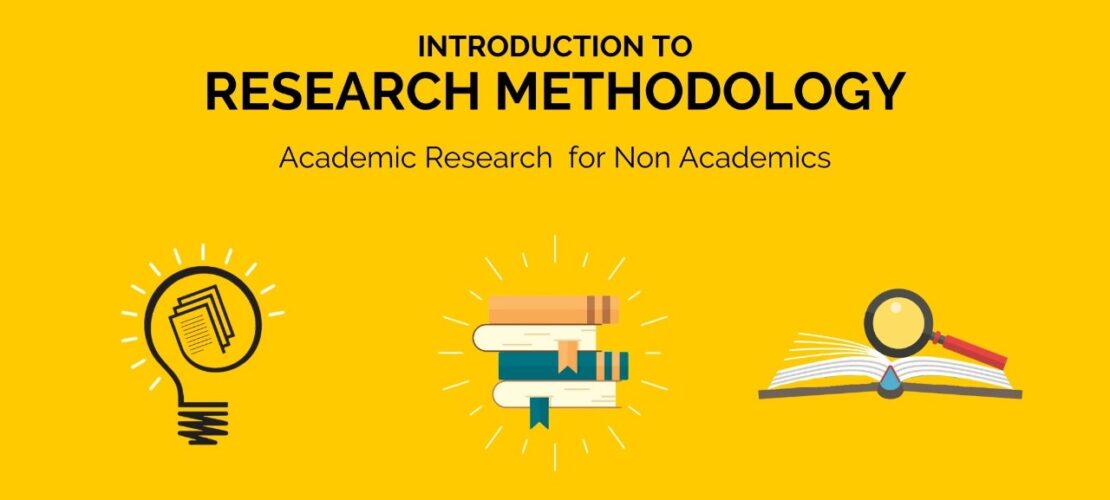
INTRODUCTION TO RESEARCH METHODOLOGY
Academic Research for Non Academics
Research is oft misunderstood. It is either understood to be as simple as a thorough google search for some information or an unintelligible mystery that only some special humans called researchers can perform.
Books on Research methodology usually focus on certain specific Social Science disciplines catering to students of university degrees.
In recent times, the interest towards research and writing research-based pieces and books is on the rise among general public. This Indica Course, targeted at such knowledge seekers and writers, is meant to provide a foundational understanding of research, its knowledge-area-specific methods and research based writing, working from the first principles.
26 February 2022 - 25 June 2022
10 AM -11 AM IST
Every Saturday
Introduction
This Indica Course is meant to serve the need of general knowledge seekers and writers looking for a foundational understanding of research.
No prior academic degree in the knowledge area of research being chosen by the student is expected. A person with degrees or background in one stream like Sciences, Technology, Design, Fine Arts, Social Sciences and Humanities can aspire to do research in any other area. But study/knowledge background in any one of the streams will be helpful in following the course.
Demystifying Terminologies: In the books and discussions on Research Methodology, the details of the terminology , their definitions and the rigorous details of quantitative and qualitative methods are overshadowing a grasp of the actual spirit of what research is and the attitude and approach required for research and the why of each of the stages of research and each of the components of research writing. This course is aimed at fulfilling this gap by taking those interested in research or research-based writing to the first principles of the methodology of research and research writing.
Customization :The course intends to create the awareness that not everything that is taught in the Research Methodology courses and books is required to be learnt by all researchers.
Natural researcher :After all methodologies are systematized procedures of activities performed out of natural skills with a natural acumen. A natural researcher could be following what is called as methodology without knowing that it is called so or could be in need of a better organizing of his natural skills. The course aims at helping such researchers to consciously organize their natural talent.
Not a Natural Researcher: But skills are as learnable as they are natural to some. This applies to skills of research and research writing too. Research Methodology when taught from the first principles has the potential of imparting these skills.
Not intensive but comprehensive: As an introductory course , this course can not claim to be intensive in any specific knowledge area specific research methods. But it aims to be as comprehensive as possible in terms of pointing at the knowable aspects for any researcher.
Flexible structure and delivery method :As a course intended for a heterogeneous group of audience, it is planned to be responsive to each of the learners to the extent possible. As such, the course is flexibly structured and delivered in response to the needs of the audience from time to time.
Objectives
The course aims to
- Demystify research and research methodology
- Create research based rigor in the writings
- Discover one’s own potential (or lack of it) for research
- Help appreciate research and research based writing
Expected Outcomes
The course will help to learn the concepts and spirit behind
- The process and steps involved in a research work
- Quantitative, qualitative and other methods available for research
- Structure and components of a research report, dissertation, thesis and/or a research book.
- Style Manuals for research writing
Syllabus
- Research Meaning, Types and Characteristics, Research Aptitude, Qualities of a good researcher
- Research in and outside research degrees, R&D and other formal research setups and informal research activity
- Research in various Academic disciplines , unidisciplinary, interdisciplinary and multidisciplinary knowledge areas, groupings of disciplines like Sciences, Engineering, Technology, Design, Social Sciences, Humanities, Fine Arts and Performing Arts
- Methods of Research : Qualitative, Quantitative; Exploratory and experimental, Historical and Ahistorical, Inductive and Deductive etc.
- Concepts like Reliability and Validity
- Steps or process of research: Research problem, Research design , Hypothesis etc.
- Thesis /dissertation /report writing and article / paper writing , style sheets and style manuals
Reading List
Research Methodology: A Step-by-Step Guide for Beginners by Ranjith Kumar Sage Publications Pvt Ltd (https://corladancash.com/wp-content/uploads/2020/01/Research-Methodology-Ranjit-Kumar.pdf)
Research Methodology : Methods And Techniques: C.R. Kothari , Gaurav Garg
Chicago Manual of Style https://www.chicagomanualofstyle.org/home.html
MLA Citation Style http://www.asjournal.org/wp-content/uploads/MLA7.pdf

